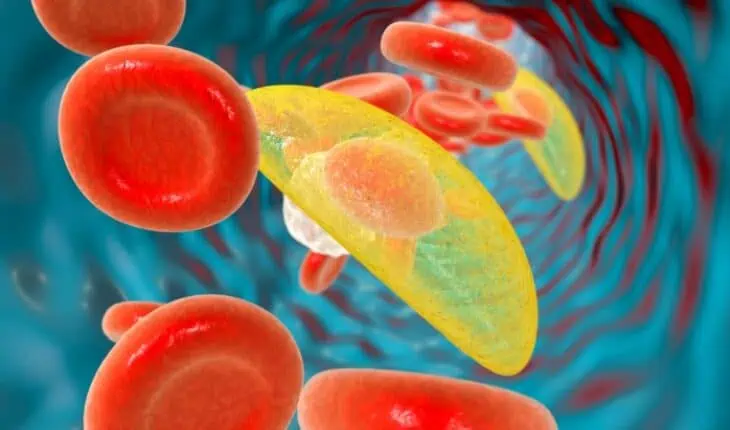Scientists have invented a new way to deliver treatment into the brain using a parasite. The study – led by the University of Glasgow in collaboration with Tel Aviv University and an international team of researchers, and published in Nature Microbiology – has also made the first successful step in finding out whether the parasites could be engineered for this purpose.
The world-first pioneering discovery represents an exciting new field of research, centred around the potential of using engineered brain parasites to deliver treatment across the blood-brain-barrier – a major complication for treatment of many neurological conditions.
The research team worked with the common brain parasite Toxoplasma gondii, already estimated to be carried by a third of the global population in its dormant state. Toxoplasma gondii has evolved to travel from the digestive system to the brain where it secretes its proteins into neurons, and researchers were keen to find out whether – with some key changes – this parasite could instead be used to safely deliver key therapeutic proteins that could help treat neurological diseases.
While most neurological conditions, including Alzheimer’s Disease, Parkinsons and Rett Syndrome, have been linked in some way to protein dysfunction, targeting the problem at source has proved complex. Delivering therapeutics – including targeted proteins – across the blood-brain-barrier and into the correct location inside neurons, is difficult, and has so far limited the treatment options for these neurological conditions.
In this study, researchers explored whether the Toxoplasma gondii parasite, which itself has evolved to easily cross biological barriers such as blood-brain-barrier (but also placenta), could act as a medicine delivery vehicle to disease-affected brain cells. To test their hypothesis the study team first had to find out whether they could effectively make the parasites produce the therapeutic proteins, and then afterwards test whether the parasites would be able to “spit” the proteins back out into affected brain cells.
The team focused on engineering the parasites to deliver the MeCP2 protein, which has already been proposed as a promising therapeutic target for Rett syndrome, a debilitating neurological disorder caused by mutations in MECP2 gene.
The first success came when the University of Glasgow research team, in collaboration with a team from Tel-Aviv university, were able to engineer Toxoplasma gondii to produce the MeCP2 protein. Further experiments confirmed that the engineered parasites indeed deliver the protein to the target cell location in both the lab, in brain organoids and in mice models – all thanks to a large team of collaborators with the necessary expertise. The team are now focused on further engineering the parasites such that it dies after delivering the protein, to prevent them from causing harm to cells.
This breakthrough work suggests that, with further research and testing, brain parasites could potentially play a role in the delivery of therapeutic proteins to the brain, and perhaps other applications.
Professor Lilach Sheiner, one of the leading authors of the study from the University of Glasgow’s School of Infection and Immunity, said: “This is a blue-sky project where our collaborative team was thinking out of the box to try to tackle the long-standing medical challenge of finding a way to successfully deliver treatment to the brain for cognitive disorders.”
However, the researchers are clear that lots more research and testing needs to happen before the parasite would be safe to use as a therapeutic delivery vehicle.
Professor Sheiner adds: “The concept is not without challenges, considering the dangers involved with Toxoplasma infection. For our work to become a treatment reality it will require many more years of careful research and development to enhance efficiency and improve safety.”
Professor Oded Rechavi said: “Evolution already “invented” organisms that can manipulate our brains, I think that instead of re-inventing the wheel we could learn from them and use their abilities.”
The study, ‘Engineering a Brain Parasite for Intracellular Delivery of Proteins to the Central Nervous System’ is published in Nature Microbiology.
More on Toxoplasma gondii
Toxoplasma gondii is a parasite that can be carried by all warm-blooded animals, including humans. It is generally transmitted through undercooked meat, soil, or from contact with cat faeces (cats are its definitive hosts). Up to one-third of the UK population is chronically infected with the parasite, although most experience few harmful effects.
Toxoplasmosis is a disease caused by the Toxoplasma parasite. While most people feel no effects from carrying the parasite, as it lies dormant in the majority of people infected, in those with weakened immune systems this parasite can ‘wake up’ and cause serious complications. When the Toxoplasma ‘wakes up’ in people with compromised immune systems it can cause stroke, and in infants it can cause severe brain damage.
- Dramatic rise in late diagnosis of oesophageal cancer - 4th February 2026
- Coeliac UK at Medical Research Showcase - 30th January 2026
- USA Fat Camp (1940) - 30th January 2026







